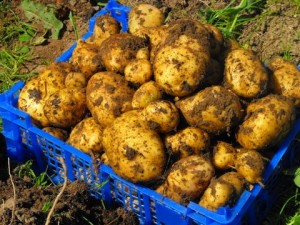
Organic food carrying the Irish Organic Association logo has been produced to the highest standards. It is produced according to our Organic Standards based on organic farming principles which are committed to working in harmony with nature rather than against nature. Our Standards are underpinned by the EU law, which ensures the integrity of organic production for Irish and European consumers. Organic farming works within the natural confines of the farming eco-system to provide you with great tasting food!
In practice organic farming;
- Avoids the use of synthetic fertilisers and pesticides
- Requires the highest standards of animal welfare
- Does not permit the use of genetically modified organisms
- Uses less fossil fuel energy per calorie of food produced
- Protects our biodiversity by maintaining suitable habitats for plants, animals and wildlife
- Encourages people to buy their food locally and in-season
When you see the Irish Organic Association logo on organic food you can guarantee that this product has been inspected and approved to meet the organic standards. Organic farming in Ireland is the one system of farming which is fully certified and regulated and we in Irish Organic Association are proud to see so many high quality products carry our logo.
TEN REASONS TO BUY ORGANIC GOOD
- STRICT STANDARDS Organic food meets strict standards that are your assurance that it is healthy and safe to eat.
- HARMFUL INPUTS Organic farming does not use synthetic fertilisers, herbicides and pesticides that are routinely used in non-organic food production and can have a negative impact on people and the planet.
- ANIMAL WELFARE Animal welfare is a priority for organic farmers and all animals are reared on grassland which is entirely free of synthetic fertilisers, herbicides and pesticides. Animals have free range and adequate living space and bedding so you can rest assured that an organic animal has had a good life.
- HEALTHY SOIL Organic farmers ensure that they maintain a healthy soil to pass on to future generations by incorporating methods such as rotations and adding natural fertility such as green manures or farmyard manure
- WATER QUALITY Organic farms preserve our valuable resources as no pollutants are released into our waterways
- BIODIVERSITY Studies have shown that organic farms support a greater number of species than non-organic farms
- ENERGY Organic farms do not apply synthetic fertilisers which are by-products of the fossil fuel industry. Instead organic farming methods increase soil carbon and therefore reduce green house gases. Organic farming can directly contribute to reducing our emissions and therefore reducing the impact of climate change
- GM Organic farming prohibits the use of genetically modified organisms
- TASTE Many people genuinely believe that organic food tastes better!
- GOOD FOR NATURE GOOD FOR YOU!